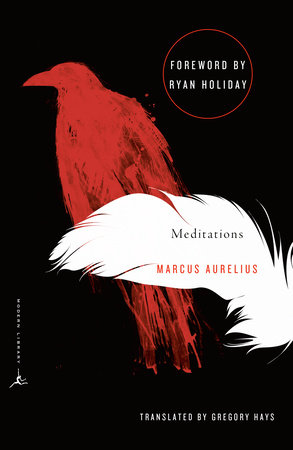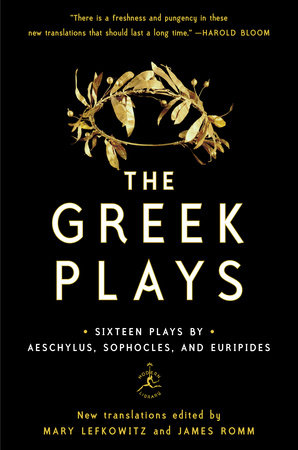Meditations
A New Translation
Marcus Aurelius; Translated by Gregory Hays
Paperback
May 6, 2003 | ISBN 9780812968255
AmazonBarnes & NobleBooks A MillionBookshop.orgHudson BooksellersPowell'sTargetWalmart
Hardcover
May 14, 2002 | ISBN 9780679642602
AmazonBarnes & NobleBooks A MillionBookshop.orgHudson BooksellersPowell'sTargetWalmart
Ebook
May 14, 2002 | ISBN 9781588361738
AmazonApple BooksBarnes & NobleBooks A MillionGoogle Play StoreKobo
About the Book
Now featuring a brand-new foreword from Ryan Holiday, #1 New York Times bestselling author of The Obstacle Is the Way!
“Meditations offers a glimpse into [Marcus Aurelius’s] mind, his habits, and his approach to life. . . . I think any reader would find something useful to take away from it.”—James Clear, #1 New York Times bestselling author of Atomic Habits
“It is unbelievable to see how the emperor’s words have stood the test of time. . . . Read a page or two anytime you feel like the world is too much.”—Arnold Schwarzenegger, The Wall Street Journal
Your ability to control your thoughts—treat it with respect. It’s all that protects your mind from false perceptions—false to your nature, and that of all rational beings.
A series of spiritual exercises filled with wisdom, practical guidance, and profound understanding of human behavior, Marcus Aurelius’s Meditations remains one of the greatest works of spiritual and ethical reflection ever written. With bite-size insights and advice on everything from living in the world to coping with adversity and interacting with others, Meditations has become required reading not only for statesmen and philosophers alike, but also for generations of readers who responded to the straightforward intimacy of his style.
In Gregory Hays’s translation—the first in nearly four decades—Marcus’s thoughts speak with a new immediacy. In fresh and unencumbered English, Hays vividly conveys the spareness and compression of the original Greek text. Never before have Marcus’s insights been so directly and powerfully presented.
With an Introduction that outlines Marcus’s life and career, the essentials of Stoic doctrine, the style and construction of the Meditations, and the work’s ongoing influence, this edition makes it possible to fully rediscover the thoughts of one of the most enlightened and intelligent leaders of any era.














